Angola Trip #2, first field day
Tim arrived here in Angola yesterday and we’ve finalized our workplan for the next couple weeks. This takes a bit of effort coordinating boats, drivers and translators (when we visit villages) with staff from Angola LNG. Our liason on the base this time is a great guy named Stuart, a Scotsman with a wonderful sense of humor who is incredibly helpful and even-keeled, and a joy to work with. Also, since this is my second trip, there are familiar faces and it’s easier to get back into the routine. It’s the end of the dry season here so everything is very dusty, the weather is mostly cloudy but cool (70’s during the day which is refreshing after the Florida humidity).
This morning we went out to a wide channel near the base where several fishermen reported frequently seeing manatees feeding at low tide (and often at night, but we don’t boat here at night for safety reasons). The tide was still going out when we arrived at 7:00am and I had been told about an embankment to sit up on to watch over the small lagoon area, so we sat and watched for over an hour. At one point Tim saw a head pop up, but it could’ve been a turtle. Lots of fish rolled at the surface, but since no manatees seemed to be there, we took the boat back out and sampled the area for aquatic plants. Our first 2 scoops with a sediment sampler brought up small freshwater plants with crinkly leaves similar to ones I’ve also found in Gabon except with browner leaves, but I’ll need to do alittle further research to determine the species. Other areas of the channel yielded no plants, which isn’t surprising because the water is murky and often too deep for sunlight to penetrate. So at least we know the place where manatees have been reported has food available.
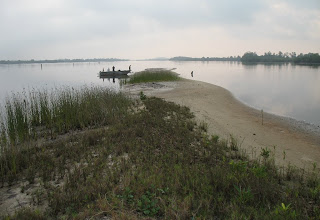 Tim brings up the sediment sampler
Tim brings up the sediment sampler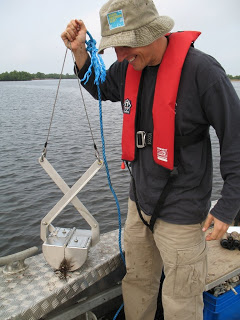
Finding plants in the mud!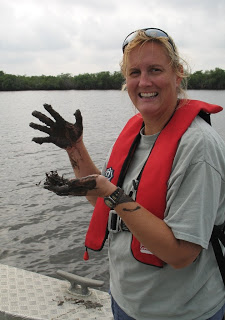
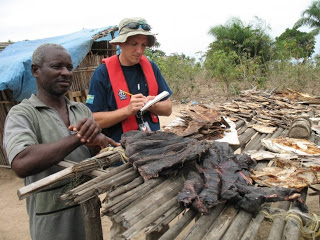


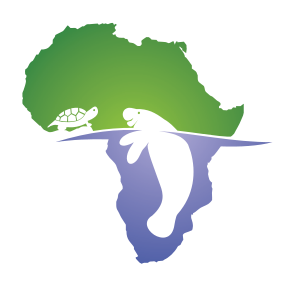
No Comments